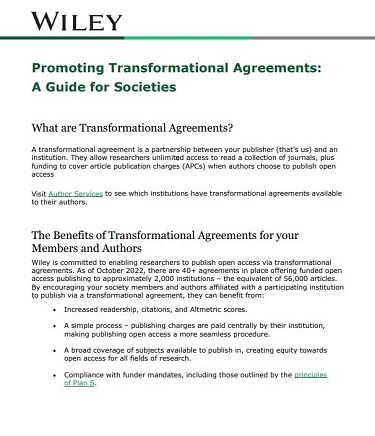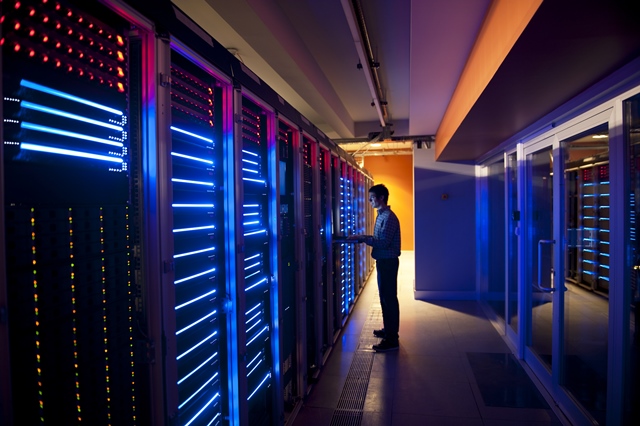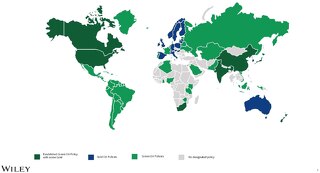the-virtuous-disruptor-how-ai-will-transform-knowledge-sharing-and-publishing-by-2025
March 09, 2022
Nearly 600 years after Chinese monks advanced the spread of knowledge with block printing, there was the Gutenberg Press, changing the dissemination of knowledge forever. And now, nearly 600 years later, Artificial Intelligence is poised to do the same.
For many, Artificial Intelligence is clouded in mystery, and bound to big screen killer bots that ultimately decide that humans must be terminated. From HAL 9000, to Skynet, to I, Robot, and back to Skynet again, AI has been popularly framed in how it can hurt humanity, rather than how it can help.
What Is AI?
Artificial Intelligence aims to train machines to perform tasks with the hallmarks of human intelligence: inference, speech recognition, visual perception, planning, learning, and language comprehension.
When machines can learn and perform any tasks that human intelligence can complete, they achieve Artificial General Intelligence. While we’re making progress, machines can’t yet perform intelligent tasks at the level of complexity of the human mind. AGI is what we often see portrayed in film, and in real life, we see some advances toward AGI with DeepMind, whose AI beat the world’s top Go players, as well as a champion chess program.
Expert opinions on when AGI will be achieved range from 2030 - 2060. Right now, AI is disrupting industries and creating opportunities.
How AI Is Changing Knowledge Sharing
Natural Language Processing and Machine Learning, branches of AI that may identify meaning in text, and patterns in data, respectively, are key to many emerging tools. The use of such methods to accelerate the creation, management, discoverability or dissemination of knowledge is what I call KnowledgeTech.
My journey with knowledge includes everything from binding books to using the technology of the time to digitize course materials at a university library. We’ve come a long way, but still, just as I did over a decade ago, institutions are relying on people to tag and transcribe digital documents.
During those tedious hours of work, I thought about the limitations and biases being embedded into each document by my manual work, and how that could mean that fewer people found the information that they needed. Later in my career, I went fully into tech, helping academic institutions, startups, and Fortune 500 companies build technologies, as well as strategies to place well on search engines like Google. Yet again, I was faced with the reality that my work to push academic content to the top of search engines could mean that many people would not find the knowledge that they needed. More than 80% of people do not click past the first set of search results.
Armed with this knowledge, I began thinking about how technology could be transformative, not just for marketing, but for ensuring that more of the world’s knowledge is discoverable. At the end of 2015 I pitched my idea to MIT, and dedicated my work to using AI to uncover and spread knowledge.
Scholarly publishing is a bounty of knowledge waiting to be harvested for the advancement of science, technology, understanding, and innovation as a whole.
Open Research, in particular, provides the necessary training for AI to unlock the knowledge buried in the text of journal articles, white papers, and other documents (also known as unstructured data).
Open Access repositories boast over 90 million articles, and preprint repositories are going live by the dozen with article counts growing by the minute. Many publishers are leaning into the changing landscape with an optimistic outlook.
By 2025, AI may add a bit of rose to the lens.
Here are just a few ways that AI will transform knowledge sharing and publishing with the start of the soaring twenties.
Publications as Data
As publishers embrace KnowledgeTech powered by AI, previous text-mining efforts will be enhanced by algorithms that add deeper context and millions of connections. Open Access is the current training ground where publishers will move beyond descriptive metadata to contextual metadata that tells its own story about the important topics and people in articles. Discoverability of knowledge is exponentially improved both for the public, and in-house publishing teams. As publications are transformed into data, powerful analytics about collections and the people that create them drive insights about the knowledge that people want and need.
Knowledge Gets an API
Data-enabled publications mean that there are more ways for people and machines to access knowledge. An Application Program Interface (API) is a set of tools that allow access to the data or features of an application by other applications. It’s like a handshake between two people that welcomes you into a warehouse that’s packed with knowledge. By 2025, billions of publications and documents are enriched, more efficiently tagged, and connected by AI that reads each text automatically. Instead of sitting in siloed databases, as is common today, knowledge becomes portable by way of APIs—handshakes, with niche applications. Scholars from every discipline use tools that provide access to specified knowledge from publications in their fields, as well as fields that have been connected with AI.
Open Research Unlocks Scientific Breakthroughs
Portable, more discoverable knowledge from publications is a game-changer for any discipline, but the impact on STEM disciplines is world-changing. Scientists have faster access to not only sources but the insights that they possess. From Open Research publications, AI surfaces these insights, as well as connections that bridge the gap between a nanotechnology researcher in South Africa and a scientist in Boston working to cure a neurologic disease.
Heading towards 2025, my work focuses on using AI to uncover insights in STEM documents with our responsive research informatics platform, Quartolio. We use AI to analyze millions of Open Access articles, connect the dots, and share the results with researchers. As researchers engage with those insights, new insights and sources are recommended.
While AI is certainly disrupting industries, it’s a virtuous disruptor for knowledge industries, including publishing. The potential to accelerate innovation, create new jobs in emerging industries, and unify knowledge workers around the world is happening today. By 2025, AI-enabled knowledge will be on track to transform the future and humanity for the better.
Nicole Bishop is the Founder and CEO of Quartolio, where scientific documents are transformed into data points that help researchers breakthrough sooner. Nicole has designed transformative tech for almost 20 years, and writes about her journey as a STEM informatician and knowledge engineer at quartolio.com
Are you interested in licensing Wiley content for AI applications? Learn more.
This article is part of the series Real World Impact with Wiley Research.











